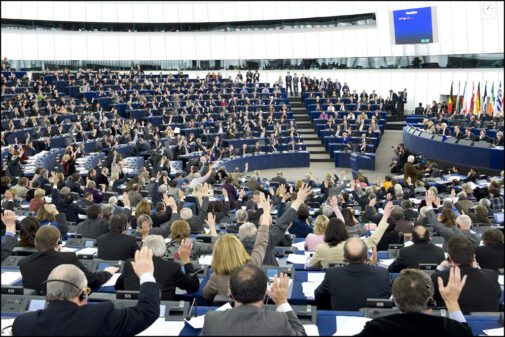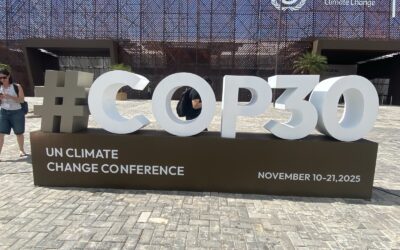Open Letter
Don’t gamble with our future: Reject the EU Carbon Removal Certification Framework
The Global Forest Coalition today joined with nearly 200 other organisations under the Real Zero Europe campaign in calling on the EU Parliament to reject the Carbon Removal Certification Framework (CRCF).
We are in the midst of climate and biodiversity crises and the CRCF will delay ambitious climate action. This despite the fact that the EU is not on track to meet its 2030 climate target – a target which was already too weak to address the escalating climate emergency.
This Wednesday, MEPs have the chance to reject the CRCF, and thereby refuse to endorse the fallacy that emissions can be ‘offset’ by projects that claim to remove carbon from the atmosphere. “Doing so would ensure that EU policies focus on real emissions cuts over greenwashing,” the letter reads.
Read the full letter here:
https://globalforestcoalition.org/wp-content/uploads/2024/04/RZE_Letter_to_MEPs_Reject_the_CRCF.pdf

©European Parliament/Pietro Naj-Oleari
Real Zero Europe – Open Letter
Don’t gamble with our future: Reject the EU Carbon Removal Certification Framework
08 April 2024
Dear Members of the European Parliament,
We, the Real Zero Europe campaign, are writing to ask you to reject the Carbon Removal Certification Framework (CRCF). We are in the midst of climate and biodiversity crises and the CRCF will delay ambitious climate action. This despite the fact that the EU is not on track to meet its 2030 climate target – a target which was already too weak to address the escalating climate emergency.
This Wednesday, you have the chance to reject the CRCF, and thereby refuse to endorse the fallacy that emissions can be ‘offset’ by projects that claim to remove carbon from the atmosphere. Doing so would ensure that EU policies focus on real emissions cuts over greenwashing.
To tackle the climate crisis, deep and rapid emissions reductions should have already happened. There is growing scientific evidence that the climate system is approaching irreversible tipping points. Action is being further delayed by the myth that Carbon Dioxide Removals (CDR) will be able to undo the damage. Even if large-scale CDR were to work in the future, they would do nothing to stop temperatures overshooting before then, threatening biodiversity and violating international law. Both land-based and technological CDR offset projects are likely to have severe impacts on people on the ground, having shown to fuel land grabbing and human rights violations in the past.
Land-based CDR offsetting projects, such as in Scotland, have led to land speculation and sharp increases in land prices. Such developments can jeopardise communities’ food sovereignty, capacities to sustainably grow food and the access to farming land for young and new farmers. Governments are already over-reliant on the land sector for emissions reductions, to the detriment of decarbonisation measures in other sectors. Globally proposed land-based removals would exceed the size of the EU, India, South Africa, and Turkey combined. Carbon stored in agricultural and forest landscapes is not permanent. It is vulnerable to the increasing impacts of the climate crisis, such as wildfires, droughts and floods.
The CRCF would also distract from other essential activities such as increasing agroecology and close-to-nature forestry. These practices would benefit the climate, but also increase biodiversity, and deliver a living income to farmers and foresters.
Technological proposals such as Direct Air Carbon Capture (DACCs) and Bioenergy with Carbon Capture and Storage (BECCS) are no ‘silver bullet’ either. They are costly and energy intensive. In its special report on Global Warming of 1.5°C, the IPCC emphasised that CDR at scale is “unproven, and reliance on such technology is a major risk in the ability to limit warming to 1.5°C”. Technological measures are unlikely to deliver the promised large-scale carbon removals, but instead will support the construction of infrastructure that would lock us into continued fossil fuel use, delay the needed energy transition, reduce biodiversity, lead to land and human rights infractions.
Definitions around “hard-to-abate” sectors and “residual” emissions have yet to be agreed. The myth of CDR projects will lead to industries or emissions being given misleading labels when the focus should be on researching innovative ways to reduce, not remove emissions.
Despite mounting evidence exposing certified offset projects which do nothing to support climate action, CRCF amendments that would have ruled out offsetting were rejected. This undermines the CRCF claim that CDR should only “complement sustained emission reductions.” Moreover, emerging discussions about integrating CRCF credits as offsets into compliance markets like the EU Emissions Trading System (ETS) or a potential agriculture ETS, and endorsing existing voluntary offset markets through the Green Claims Directive are a dangerous harbinger of what is to come. By legitimising failed carbon offset markets, the CRCF would multiply their dangers not only in the region but globally. The EU needs to stand by its previously applauded agreement to exclude forests and other carbon credits from the ETS on the grounds that they undermine climate action.
Time and time again, we’ve seen evidence that offset schemes do not benefit the climate. This will not be solved by the CRCF’s questionable rules for certification. These rules will instead make things worse by giving offsets a credibility boost, thereby extending their scope and their use.
We urge you not to legitimise a failed climate solution. But to focus instead on leaving fossil fuels in the ground, protecting our communities, soils and forests as well as the climate. Don’t gamble with our future by approving the CRCF!




